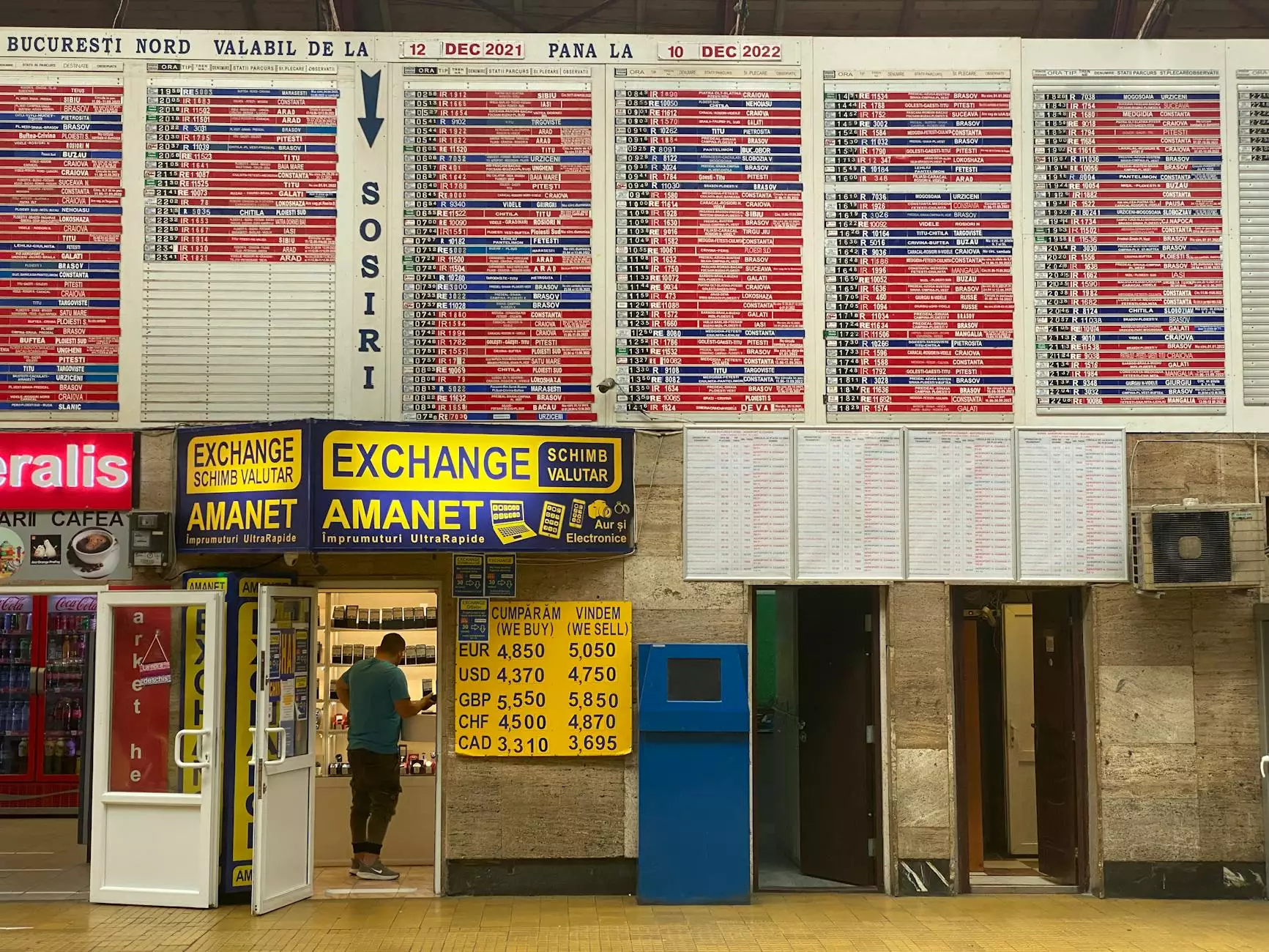The Growing Concerns Surrounding 'Biljet Nep' in the Business World

In today’s rapidly evolving business environment, the term 'biljet nep'—which translates to 'fake ticket' in English—has become increasingly significant. As industries worldwide grapple with the implications of counterfeit goods and documents, understanding this phenomenon is vital for any business owner. This article delves deep into the issues surrounding fake money and fake documents, providing insights and strategies for businesses to mitigate risks associated with 'biljet nep'.
Defining 'Biljet Nep'
The phrase 'biljet nep' specifically refers to counterfeit tickets, often used in contexts involving fraudulent monetary transactions or documentation. For businesses, this represents not just a legal challenge but an ethical one as well. Understanding the broader implications of biljet nep requires a dive into its two primary categories: fake money and fake documents.
The Dangers of Fake Money
Fake money poses a serious threat to businesses across various sectors. Counterfeit currency can undermine trust, disrupt financial systems, and lead to significant financial losses.
How Fake Money Affects Businesses
- Loss of Revenue: Acceptance of counterfeit bills can lead to immediate financial loss, as businesses may not be able to recover those losses.
- Legal Ramifications: Involvement with counterfeit money can lead to criminal charges and damages to a business’s reputation.
- Decreased Consumer Trust: The prevalence of fake money can erode consumer confidence, impacting sales and customer loyalty.
Strategies to Combat Fake Money
Businesses must implement a variety of strategies to detect and prevent the acceptance of counterfeit currency:
- Employee Training: Regular training sessions for employees on recognizing counterfeit bills can be invaluable. They should be familiar with the latest security features of the currency they handle.
- Use of Detection Tools: Investing in counterfeit detection machines can significantly reduce the risk of accepting fake money.
- Regular Audits: Conducting periodic audits of cash transactions to identify inconsistencies can help catch counterfeit money before it becomes a serious problem.
Navigating the Challenges of Fake Documents
Beyond financial implications, fake documents present their own set of challenges that can greatly affect a business.
Risks Associated with Fake Documents
- Fraud: Fake identification or business documents can enable criminal activities, leading to financial loss and legal issues.
- Damage to Reputation: If a business is found to have accepted fraudulent documents, it can suffer irreversible damage to its reputation.
- Operational Inefficiencies: Dealing with counterfeit documents can lead to misinformation and operational delays, impacting productivity.
Preventative Measures Against Fake Documents
In order to safeguard against fake documents, businesses should consider the following measures:
- Verification Processes: Implement a strict verification process for all essential documents, such as identification, contracts, and licenses.
- Use of Technology: Leverage advanced technology, including blockchain, to ensure document authenticity.
- Collaborate with Authorities: Establish connections with law enforcement and regulatory bodies for reporting and assistance in identifying fraudulent activities.
Real-World Examples of 'Biljet Nep' Impact
To further understand the ramifications of 'biljet nep', let’s examine a few real-world scenarios.
Case Study 1: Counterfeit Currency in Retail
A major retail chain experienced multiple cases of employees accepting counterfeit bills due to a lack of training and detection tools. The resulting losses prompted the chain to revise its cash handling policies, implement a robust training program, and invest in counterfeit detection technology.
Case Study 2: Fake Documentation in Employment
A small tech startup hired a candidate who provided fraudulent educational credentials. This led to a significant decline in team morale and productivity when the truth was revealed. The company then established stricter hiring procedures, including thorough background checks, greatly improving their hiring processes.
Legal Framework and Regulations
Navigating the legal landscape surrounding 'biljet nep' and related counterfeit issues can be daunting. Businesses must remain informed about current laws and regulations concerning fake money and fake documents:
- Understanding Local Laws: Each country has its own laws regarding counterfeit currency and documents. Businesses need to familiarize themselves with these regulations to operate legally.
- Compliance Requirements: Many industries have compliance requirements regarding the acceptance and verification of documentation. Staying compliant is crucial for avoiding legal penalties.
Conclusion
In summary, the implications of 'biljet nep' in business are far-reaching and complex. By understanding the risks associated with fake money and fake documents, businesses can put effective strategies in place. This proactive approach not only mitigates risks but also helps maintain consumer trust and protect brand integrity.
As we see an increase in the sophistication of counterfeit operations, vigilance and education remain paramount. Empowering employees with knowledge and tools to recognize and combat the threats of 'biljet nep' is essential for any modern business striving for integrity and success in this challenging landscape.


